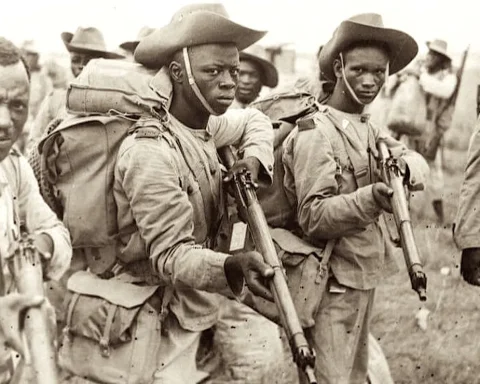The Battle of Hastings fought on October 14, 1066, was a pivotal event in English history with far-reaching consequences for the country and its people. The victory of the Normans over the Anglo-Saxons had a huge effect on English politics, culture, and language. In this article, we will explore the effects of the Battle of Hastings.
Norman Conquest:
The Norman Conquest of England was the most important thing that came out of the Battle of Hastings. After King Edward the Confessor died, William the Conqueror, Duke of Normandy, claimed the English throne for himself. He led an army of Normans into England. His victory at the Battle of Hastings ensured his conquest of England, and he was crowned King of England on Christmas Day in 1066.
This conquest had profound implications for English society. The Normans brought with them a new language, French, which became the language of the ruling class and had a significant impact on the development of English. The Anglo-Saxon ruling class was replaced by Norman nobles, and the feudal system was put in place. This made a new social order.
Centralization of Power:
The Norman Conquest also led to the centralization of power in England. William the Conqueror established a strong central government, with himself as the ultimate authority. He made changes to the law and the way things were run. One of these changes was the Domesday Book, a list of all the landowners in England and how much land they owned. This enabled him to exert greater control over the country and its people.
Cultural Exchange:
The Norman Conquest also had a significant impact on English culture. The Normans brought with them their own customs, traditions, and beliefs, which had a lasting effect on English culture. Over time, the Anglo-Saxon and Norman cultures mixed, making a rich and varied culture that is still visible in England today.
Military Tactics:
The Battle of Hastings also had an impact on military tactics in Europe. The Normans were known for their horse troops, which helped them win the war. They also used archers to kill a lot of people, which shows how important long-range weapons were in the Middle Ages. The tactics used by the Normans at the Battle of Hastings became a model for other European armies, leading to significant changes in military strategy.
In the end, the Battle of Hastings had a big impact on English politics, culture, language, and society. The Norman Conquest created a new social order, with French becoming the language of the ruling class. Centralising power and putting in place new legal and administrative systems changed the country in ways that will last for a long time. The exchange of ideas between the Anglo-Saxons and the Normans led to a culture that was both diverse and rich. The battle also changed the way armies in Europe fought. Its legacy continues to be felt in England today, almost 1,000 years later.
Here are some sources used in this article about the effects of the Battle of Hastings:
- Bartlett, R. (2003). England under the Norman and Angevin kings, 1075-1225. Oxford: Clarendon Press.
- Bates, D. (2018). The Normans and Empire: The Impact of the Battle of Hastings. History Today, 68(10), 20-26.
- Keen, M. (1999). The Norman Conquest. Pearson Education Limited.
- Wood, M. (2003). In Search of the Dark Ages. BBC Books.
These sources tell you a lot about the Battle of Hastings, what happened after it, and how it changed English society, culture, and politics.






